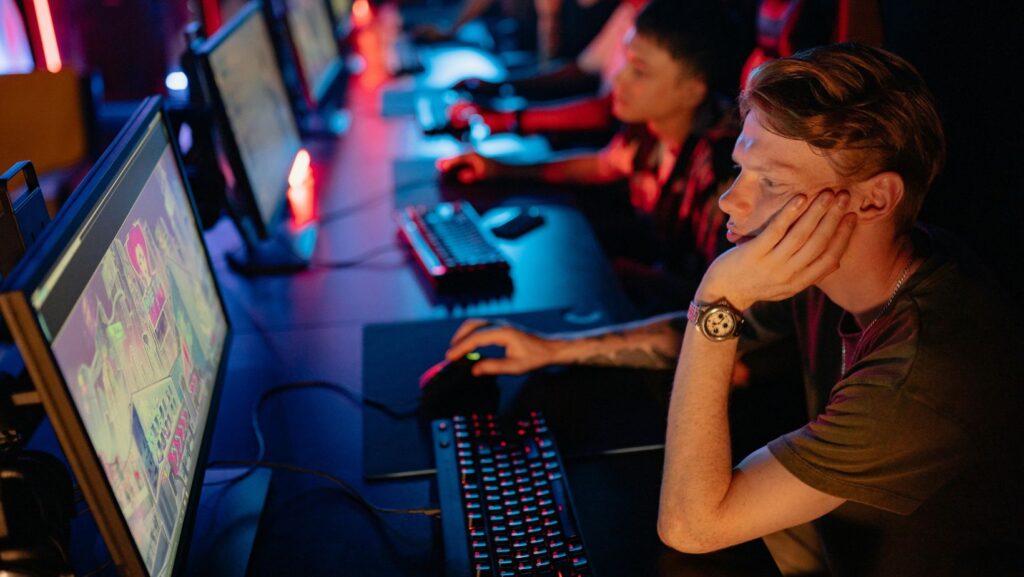The gaming industry continues to be one of the fastest-growing entertainment sectors. A report on ‘How Many Gamers Are There?’ detailed how the gaming market was valued at $282 billion in 2024, with over 3.09 billion active gamers worldwide. The interconnectedness between players and gaming platforms defines the modern gaming industry. Many gamers play online and sign up for subscription services through their PC, gaming console, or smart device. This has created a vast amount of data that gaming companies can use to improve their products and services.
As we explained in our post ‘Streamlined Data Retrieval’, in the modern business world, efficient data retrieval is crucial for maintaining productivity and competitiveness, and in order to do so, businesses need to invest in a data management system that meets the needs of their operations. NoSQL databases are a versatile data management system that is increasingly used in the gaming industry to store gamer data and create new games. Below, we will explore what a NoSQL database is and how it is being used in gaming.
NoSQL Databases
NoSQL databases store data differently than traditional relational tables. Compared to storing data in tables and columns, NoSQL databases are able to store various data types more flexibly and naturally using different types of databases. These are document databases, key-value databases, wide-column stores, and graph databases. Each database offers different features, with the MongoDB guide ‘What is NoSQL?’ describing how “graph databases could be more suited for analyzing complex relationships and patterns between entities, while document databases provide a more flexible, natural way of storing and retrieving large data volumes of similar types as documents.” It is these different capabilities that make these databases ideal for gaming companies. Below are four different ways NoSQL databases are being used in gaming.
Organizing Player Profiles
Most gamers today have a player profile that tracks their progress across multiple games and allows them to purchase new titles or updates. A LinkedIn post titled ‘NoSQL Databases: Transforming Data Handling Across Industries’ explains how online gaming uses NoSQL databases to track user activities and game stats. A document database would allow all the information related to one player to be stored in a single document, making it fast and efficient to create and retrieve data. This allows players to grow their gaming profile and access immediate information about past achievements and transactions. It also allows gaming companies to seamlessly match players to gamers in online gaming.
Collecting Data for Game Development and Modification
A key advantage of a NoSQL database is that it can store unstructured data, which is data that doesn’t fit into a table. In gaming, this can include player feedback, records of in-game events and transactions, and chat transactions. Gaming companies can collate this information to get a better understanding of what players prefer and use this feedback to create new products or modify existing games. Each type of NoSQL database allows developers to run data analytics that help gaming companies detect patterns and trends that benefit their products.
The Implementation of Generative AI into Gaming
Generative AI is pushing all industries forward. As we explored in ‘The Synergy of Generative AI’, generative AI complements and synergizes with various innovative technologies, including AI/ML, Data Warehouse, IoT, AR/VR, process automation, and more. In gaming, generative AI is used to write code and create in-game dialogue, narrative tools, and characters. 
The Ability to Scale with the Games
Mobile gaming is the most popular type of gaming, with a 2023 survey finding that more than 68% of internet users aged 16 to 44 played games on their phones. Unlike PC or console games, which come fully formed upon delivery, mobile games often start small and then expand as they become more popular. As the game expands, so too does the amount of data that can be collected. NoSQL databases scale horizontally, which means that nodes can be added to meet data demands. Mobile games experiencing rapid growth can use a NoSQL database to scale with the audience increase to ensure that the product is not affected in any way.



More Stories
The One Night My Bank Froze My Account — And Why I Switched to Crypto Gambling Forever
Mining Games Made Fun: Explore Miner Wars with GoMining
Why Mahjong Is the Ultimate Brain Training Game (And Not Just for Grandparents!)